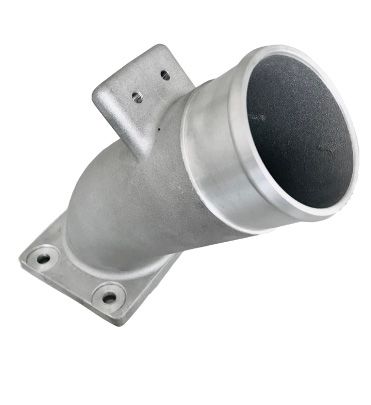The Only Guide for Alcast Company
Table of ContentsThe Facts About Alcast Company RevealedNot known Incorrect Statements About Alcast Company Alcast Company Things To Know Before You BuyAn Unbiased View of Alcast CompanyAlcast Company for BeginnersEverything about Alcast Company
Chemical Comparison of Cast Light weight aluminum Alloys Silicon promotes castability by decreasing the alloy's melting temperature level and enhancing fluidness during spreading. Additionally, silicon contributes to the alloy's toughness and wear resistance, making it valuable in applications where toughness is vital, such as automotive parts and engine elements.It additionally enhances the machinability of the alloy, making it much easier to process right into completed items. This way, iron adds to the overall workability of aluminum alloys. Copper boosts electrical conductivity, making it useful in electrical applications. It also enhances deterioration resistance and contributes to the alloy's total strength.
Manganese adds to the toughness of aluminum alloys and boosts workability (aluminum metal casting). It is commonly used in wrought aluminum products like sheets, extrusions, and profiles. The existence of manganese help in the alloy's formability and resistance to splitting throughout manufacture processes. Magnesium is a light-weight component that supplies toughness and effect resistance to aluminum alloys.
The 30-Second Trick For Alcast Company
It enables the production of lightweight elements with excellent mechanical homes. Zinc enhances the castability of aluminum alloys and aids manage the solidification procedure during spreading. It enhances the alloy's stamina and firmness. It is usually located in applications where intricate shapes and great details are necessary, such as attractive spreadings and specific automobile components.

The main thermal conductivity, tensile stamina, return toughness, and elongation vary. Select ideal basic materials according to the performance of the target item created. Amongst the above alloys, A356 has the highest thermal conductivity, and A380 and ADC12 have the most affordable. The tensile restriction is the opposite. A360 has the most effective yield toughness and the highest possible elongation rate.
5 Simple Techniques For Alcast Company

In precision casting, 6063 is fit for applications where detailed geometries and top notch surface area coatings are critical. Instances consist of telecommunication rooms, where the alloy's premium formability enables smooth and visually pleasing styles while preserving architectural stability. In the Lighting Solutions market, Continued precision-cast 6063 components produce sophisticated and efficient illumination fixtures that call for intricate shapes and excellent thermal performance.
The A360 exhibits premium prolongation, making it ideal for complicated and thin-walled elements. In precision casting applications, A360 is fit for markets such as Consumer Electronics, Telecommunication, and Power Tools.
The smart Trick of Alcast Company That Nobody is Talking About
Its unique buildings make A360 a valuable selection for precision casting in these industries, boosting item sturdiness and high quality. Light weight aluminum alloy 380, or A380, is a commonly used casting alloy with a number of unique attributes. It offers superb castability, making it a suitable choice for accuracy spreading. A380 exhibits good fluidity when molten, ensuring detailed and in-depth mold and mildews are properly replicated.
In precision spreading, light weight aluminum 413 radiates in the Consumer Electronic Devices and Power Tools industries. It's generally made use of to craft complex components like smart device housings, camera bodies, and power device housings. Its precision is impressive, with tight resistances approximately 0.01 mm, guaranteeing remarkable item setting up. This alloy's premium rust resistance makes it an exceptional selection for exterior applications, making sure durable, resilient items in the mentioned industries.
Alcast Company Fundamentals Explained
The light weight aluminum alloy you choose will considerably influence both the casting process and the residential properties of the last item. Because of this, you should make your choice meticulously and take an enlightened approach.
Determining one of the most ideal aluminum alloy for your application will suggest weighing a broad selection of characteristics. These comparative alloy attributes comply with the North American Die Spreading Organization's standards, and we have actually split them right into 2 classifications. The very first category addresses alloy characteristics that affect the manufacturing procedure. The 2nd covers features impacting the residential properties of the end product.
An Unbiased View of Alcast Company
The alloy you pick for die spreading directly influences a number of elements of the spreading process, like just how easy the alloy is to deal with and if it is prone to casting defects. Warm fracturing, also referred to as solidification fracturing, is a regular die spreading flaw for light weight aluminum alloys that can lead to inner or surface-level splits or fractures.
Specific aluminum alloys are much more prone to hot fracturing than others, and your option should consider this. One more usual flaw located in the die casting of light weight aluminum is pass away soldering, which is when the actors stays with the die walls and makes ejection difficult. It can harm both the cast and the die, so you must search for alloys with high anti-soldering residential or commercial properties.
Rust resistance, which is currently a notable quality of aluminum, can vary significantly from alloy to alloy and is an important particular to think about depending on the environmental problems your item will be exposed to (aluminum foundry). Wear resistance is one more property commonly looked for in aluminum items and can differentiate some alloys